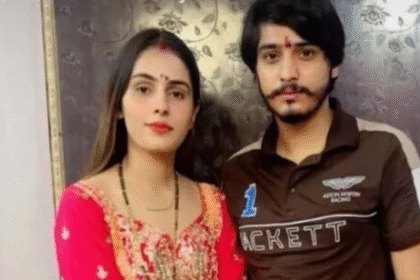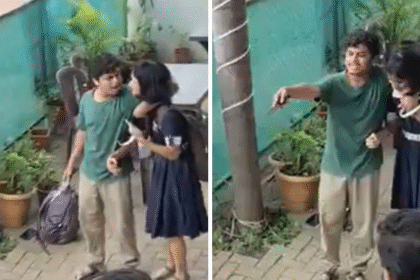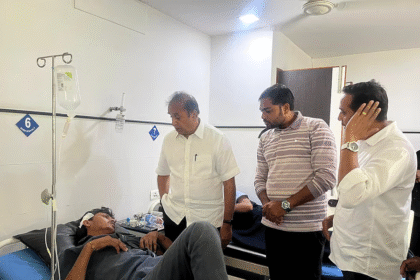Why did AIMIM chief Asaduddin Owaisi skip Op Sindoor all-party delegations’ meet with PM Modi?
Introduction: A Significant Political Absence
In the high-stakes aftermath of Operation Sindoor—a complex and heroic rescue mission conducted by Indian armed forces to bring back stranded citizens from violence-hit Manipur—Prime Minister Narendra Modi convened an all-party meeting to brief leaders and build a sense of national unity around the effort. However, one notable absence caught widespread attention: Asaduddin Owaisi, the outspoken chief of the All India Majlis-e-Ittehadul Muslimeen (AIMIM), chose not to attend.
The decision, while surprising to some, is in line with Owaisi’s broader political positioning and his criticism of the central government’s approach to inclusivity and minority representation. This article dives deep into why Asaduddin Owaisi skipped the all-party meeting, what it says about India’s political climate, and how it reflects broader themes of representation, voice, and policy direction in Indian democracy.
What Was Operation Sindoor?
Operation Sindoor was launched in response to escalating violence in Manipur, particularly in the wake of ethnic tensions between Meitei and Kuki communities. The Indian government, under immense domestic and international pressure, activated a massive evacuation and rescue effort to ensure the safety of stranded civilians.
The success of the operation prompted the central government to organize an all-party meeting, inviting opposition and allied leaders alike to build bipartisan credibility, offer transparency, and encourage national consensus around the issue of Manipur’s ongoing crisis.

Owaisi’s Absence: A Deliberate Political Statement
While parties across the spectrum joined the meeting with the Prime Minister, Asaduddin Owaisi’s decision to abstain was not an accidental or casual miss—it was a calculated political move meant to make a clear point: the AIMIM does not endorse optics over substance, especially when it concerns issues of minority neglect and selective outrage.
In a public statement, Owaisi cited reasons such as:
- Exclusionary politics: He claimed that the BJP-led central government regularly marginalizes voices like his in parliamentary and non-parliamentary affairs.
- Symbolic tokenism: He argued that meetings such as these are often performative, used to shield the government from real accountability.
- Lack of invitation to key voices: Owaisi has repeatedly noted that genuine stakeholders, especially those representing India’s marginalized communities, are often left out of critical discussions.
The Larger Political Narrative: Inclusion vs. Visibility
This move by Owaisi isn’t happening in a vacuum. Over the years, he has positioned himself as a vocal advocate for the voiceless—particularly Muslims, Dalits, and other marginalized communities. His consistent critique of both the BJP and, at times, the Congress-led opposition has earned him the label of a third-front disruptor.
By skipping the Operation Sindoor meeting, Owaisi reinforced his core message: “Visibility is not inclusion.” Just because a party is invited to a roundtable does not mean that their voices are taken seriously or that their communities are being served effectively.
Political Optics vs. Ground Reality
The all-party meeting was framed by the central government as a sign of healthy democracy. Yet, as critics point out, these symbolic gestures often do little to change ground realities. In states like Manipur, reports of continued violence, internet blackouts, and alleged police inaction continue to emerge, raising the question: Is the government focused on solving the problem or managing the narrative?
For Owaisi, whose constituency thrives on this very contrast between perception and reality, the meeting was an opportunity to stand apart. By not attending, he drew more media attention than he likely would have inside the room—demonstrating a shrewd understanding of political messaging in the digital age.
Reaction from Other Parties
Other opposition parties, including the Congress, TMC, and DMK, did attend the meeting but voiced concerns over the government’s delayed response and poor handling of the Manipur crisis. However, unlike Owaisi, these parties opted for engagement-within-system, choosing to criticize from inside the meeting rather than by boycotting it.
This highlights a divide within the opposition itself—some believe in institutional participation, even if flawed, while others like Owaisi prefer principled distance as a form of protest.
A Pattern of Selective Participation?
This isn’t the first time Asaduddin Owaisi has abstained from government-sponsored dialogue. His decision follows a trend where AIMIM chooses not to lend legitimacy to forums where they feel their concerns are already being overlooked. For example:
- AIMIM has criticized Parliamentary debates where crucial bills are passed without real discussion.
- Owaisi has walked out of sessions that ignore minority rights or bypass constitutional values.
His party’s non-attendance, then, is not disengagement but a form of active resistance—a way to protest selective inclusivity that values presence over participation.
What This Means for Indian Democracy
Whether one agrees with Owaisi or not, his boycott of the Operation Sindoor all-party meet raises serious questions about the health of participatory democracy in India:
- Are all voices truly welcome at the decision-making table?
- Do symbolic meetings replace genuine reforms?
- Is national unity being used as a political shield to avoid hard questions?
In a diverse democracy like India, true representation must go beyond the optics of invitation. It must include actual engagement, policy inclusion, and respect for dissent.
Conclusion: A Bold Move with Deeper Implications
Asaduddin Owaisi’s decision to skip the Operation Sindoor all-party meeting with Prime Minister Modi is more than a headline—it’s a mirror reflecting the challenges within Indian political discourse. His absence wasn’t passive; it was a loud, intentional silence—a demand to recognize that minority voices must be heard not just in crisis, but in governance, in policy, and in vision.
In the days ahead, as India grapples with internal strife, questions of inclusion, and the narrative battle between nationalism and dissent, actions like Owaisi’s will continue to shape the contours of political dialogue.
Whether one agrees with his strategy or not, one thing is certain: he has sparked a conversation the country cannot afford to ignore.
Also Read : 7 Incredible Moments from Puri as Lakhs Witness Lord Jagannath’s Grand Snana Yatra 2025








